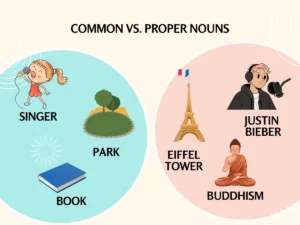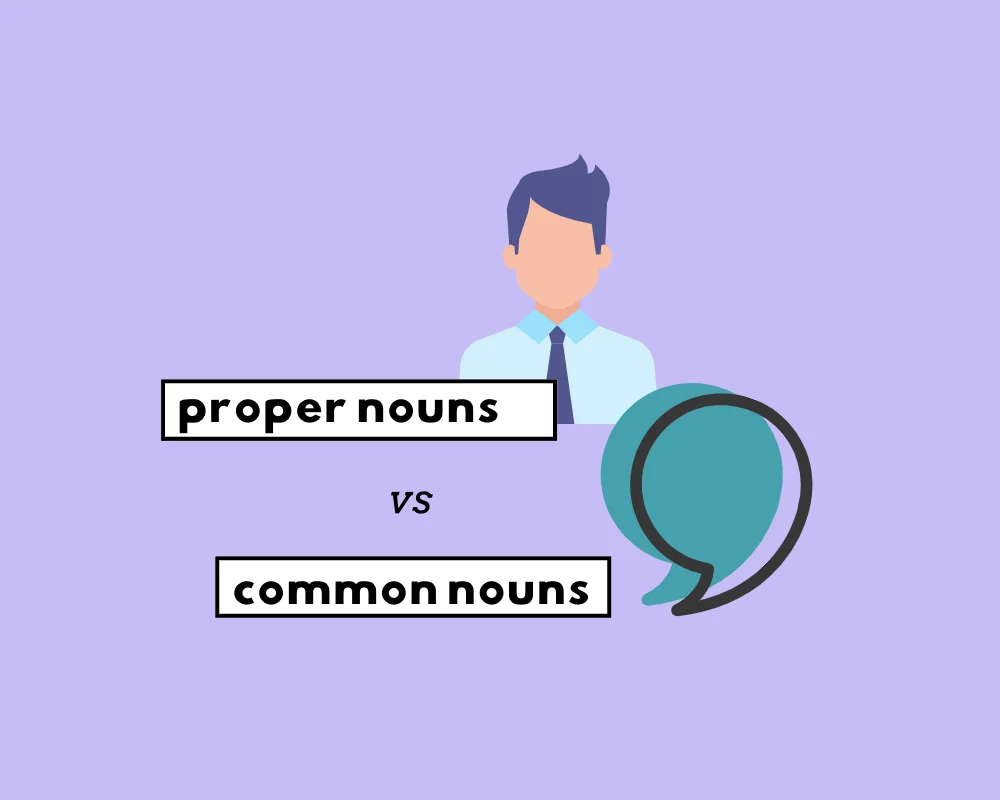
Contents
Toggle
Common nouns vs. proper nouns
Consider how we write the sentence, “Queen Elizabeth II was a celebrated queen”.
Why should ‘Queen Elizabeth II‘ use capitals, and not the word ‘queen‘ itself?
Queen Elizabeth II is the name of a specific person, and so (to that extent) specifies what or who specifically is being mentioned.
The word “queen” itself, however, could mean any queen (fictional or historical). This makes “queen” a common noun: it names a category or kind of thing (that specific things of that kind belong to; such as Queen Elizabeth II).
Proper nouns & common nouns explained
Proper nouns name specific people places or thing, such as Queen Elizabeth II, Mt. Vesuvius or a MacBook Pro.
Common nouns name groups or kinds of things, such as an actor, country and food.
Because proper nouns specify what they refer to, (and only refer to that thing, person, place), we capitalize the first letter no matter where they appear in a sentence.
Conversely, commons nouns do not use capital letters unless they begin a sentence or are part of a proper noun (as in the name of a title of a work or novel, e.g., The Winter of Our Discontent by John Steinbeck). Otherwise, they use lowercases.
| common nouns | proper nouns |
| A musician | Jon Batiste |
| A continent or country | India |
| A company | |
| A newspaper | The New Yorker |
| A religion | Buddhism |
Examples of proper nouns
The proper nouns are in italics:
- I’ve never been to France.
- Barbara’s cat is named Scout.
- My favourite book is Pride and Prejudice by Jane Austen.
- Mount Everest is the tallest mountain on Earth.
- Existentialism is a branch of philosophy that questions the meaning of existence.
Examples of common nouns in writing
The common nouns are in italics:
- My favourite activity in the summer is to hike mountains.
- Many dog breeds are not suitable for living indoors.
- I wish I could remember the name of that painter.
- They’re all waiting for us at the restaurant.
- These buildings are magnificent pieces of architecture.
Read more about nouns
Sources
- English Grammar and Composition, P.C. Wren.
- Grammarly on mass nouns.










